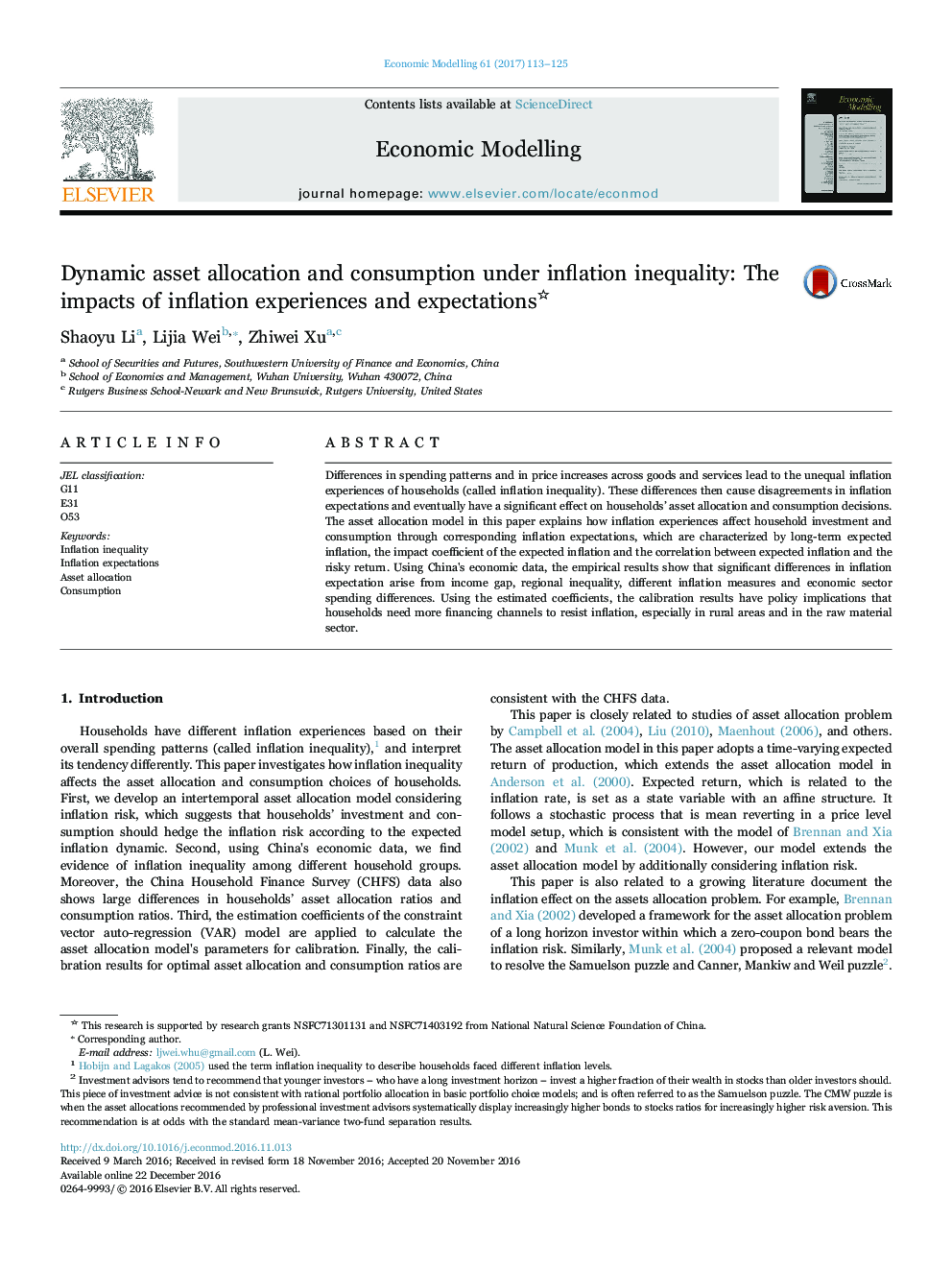| Article ID | Journal | Published Year | Pages | File Type |
|---|---|---|---|---|
| 5053094 | Economic Modelling | 2017 | 13 Pages |
â¢Investigate how inflation inequality affects households' investment and consumption.â¢Both spending patterns and price increases matter in the asset allocation problem.â¢Explain the asset allocation and consumption diversity observed in survey data.â¢Rural household and the material sector need financing channels to resist inflation.
Differences in spending patterns and in price increases across goods and services lead to the unequal inflation experiences of households (called inflation inequality). These differences then cause disagreements in inflation expectations and eventually have a significant effect on households' asset allocation and consumption decisions. The asset allocation model in this paper explains how inflation experiences affect household investment and consumption through corresponding inflation expectations, which are characterized by long-term expected inflation, the impact coefficient of the expected inflation and the correlation between expected inflation and the risky return. Using China's economic data, the empirical results show that significant differences in inflation expectation arise from income gap, regional inequality, different inflation measures and economic sector spending differences. Using the estimated coefficients, the calibration results have policy implications that households need more financing channels to resist inflation, especially in rural areas and in the raw material sector.
